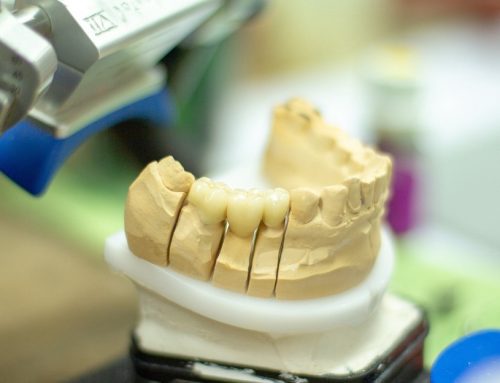As the days grow longer and flowers bloom in full splendor, the arrival of warmer weather is met with mixed emotions. While the season brings natural beauty, it also marks the beginning of allergy season for many.
However, with the proper knowledge, preparation, and a few proactive steps, you can breathe easier and enjoy the best nature offers.
Let’s navigate this sneezy season together!
Contents
- 1 1) Understand Your Allergies
- 2 2) Timing is Everything: Stay Indoors During Peak Pollen Hours
- 3 3) Relying on Trusted Local Resources
- 4 4) Making Your Home an Allergy-Proof Sanctuary
- 5 5) Always Be Prepared
- 6 6) Embracing Natural Remedies
- 7 7) Strengthening the Immune System
- 8 8) Wardrobe Choices for Allergy Season
- 9 9) Crafting an Allergy-Free Sleep Space
- 10 10) Navigating Social Gatherings
- 11 11) The Role of Technology in Allergy Management
- 12 12) Nutritional Allies in the Fight Against Allergies
- 13 13) The Psychological Impact of Allergies
- 14 Conclusion
1) Understand Your Allergies
To tackle allergy woes, it’s vital to get acquainted with what triggers them. Different individuals are sensitive to various allergens, be it tree pollen, grass, mold, or the infamous ragweed.
- Track your symptoms: Initiate a diary, noting the days your allergies hit the hardest. Include details about your location, the time of day, and activities. Over time, patterns can help identify triggers.
- Visit an allergist: Personal observations might only give you part of the picture. Consulting an allergist can reveal specific allergens and guide you towards appropriate measures.
2) Timing is Everything: Stay Indoors During Peak Pollen Hours
Pollen counts are generally highest during early mornings and late afternoons. Recognizing these patterns can significantly reduce exposure.
- Adjust your routine: Reschedule activities to dodge peak pollen times. If you enjoy an early morning stroll, perhaps consider a mid-morning one during high allergy season.
- Stay informed: Many online resources and apps provide daily pollen counts. Keeping updated helps in planning outdoor activities.
3) Relying on Trusted Local Resources
Local pharmacies are invaluable when seeking relief from allergies.
Reliability: Finding a reliable pharmacy where you can find a comprehensive range of over-the-counter medications and get advice is invaluable. This gets even better if the establishment is nearby, such as a Madison Street Pharmacy in Clarksville.
Consulting with Pharmacists: Engaging with the knowledgeable staff at your local pharmacy can yield valuable insights. They are familiar with prevalent allergens in the region and can guide you to the most suitable remedies, be it over-the-counter or prescription-based.
4) Making Your Home an Allergy-Proof Sanctuary
Your home should be a place of comfort. Here’s how to ensure allergens don’t invade this sanctuary.
- Invest in quality air purifiers: Devices with HEPA filters trap tiny allergenic particles, ensuring your indoor air stays pure.
- Frequent cleaning: Keeping your living space tidy goes a long way. Regular dusting and vacuuming prevent allergen accumulation. Also, washing bed linens in hot water weekly can fend off allergen buildup.
- Mind the humidity: A moist environment is a playground for mold. Using dehumidifiers to maintain indoor humidity between 30%-50% can curtail mold growth.
5) Always Be Prepared
While proactive measures help, allergies can sometimes be unpredictable. Being prepared ensures you’re not caught off-guard.
- Carry essentials: Always have a compact kit with allergy relief items, like tissues, medications, or eye drops. This ensures you can address symptoms immediately.
- Stay hydrated: Consuming ample water helps flush allergens from your system, potentially reducing symptom intensity and duration.
6) Embracing Natural Remedies
Harnessing the healing potential of nature can be a game-changer during allergy season.
- Herbal Teas: Nettle and peppermint teas act as natural antihistamines, offering relief without the side effects of medications.
- Local Honey: Consuming local honey might help desensitize the body to regional pollen, reducing allergy symptoms over time.
7) Strengthening the Immune System
Building a robust immune response can reduce the severity of allergic reactions.
- Balanced Diet & Exercise: Regular physical activity and a diet rich in antioxidants boost immunity, potentially minimizing allergic responses.
- Stress Management: Stress can weaken the immune system. Practicing relaxation techniques such as meditation can aid in maintaining optimal immune function.
8) Wardrobe Choices for Allergy Season
Your attire can play a pivotal role in managing allergies.
- Protective Clothing: Donning long sleeves, pants, and wide-brimmed hats during high pollen counts can shield you from allergens.
- Post-Outdoor Routine: Changing clothes and taking a shower after being outdoors can prevent the transfer of allergens inside your living space.
9) Crafting an Allergy-Free Sleep Space
Ensuring a peaceful, allergen-free night’s sleep can make all the difference.
- Allergen-Proof Bedding: Invest in covers for pillows and mattresses that keep allergens at bay.
- Regular Cleaning: Vacuuming the bedroom and washing bed linens in hot water weekly can drastically reduce allergens.
Social events can pose challenges, but you can enjoy them without the sneezes with a few strategies.
- Informed Choices: Opt for indoor events during peak pollen times. If attending outdoor gatherings, stay prepared with your allergy relief essentials.
- Communication: Informing hosts about your allergies allows for accommodations, ensuring you can partake in festivities without discomfort.
11) The Role of Technology in Allergy Management
In this digital age, technology can be a staunch ally against allergies.
- Mobile Apps: Numerous apps offer real-time pollen count updates and forecasts. Tailoring your activities based on these can mitigate exposure.
- Air Purifiers: Modern air purifiers equipped with HEPA filters can capture and reduce indoor allergens, promoting a healthier living environment.
12) Nutritional Allies in the Fight Against Allergies
Diet plays a role in managing allergy symptoms, and certain foods stand out.
- Omega-3 Rich Foods: Consuming foods like salmon, flaxseeds, and walnuts, which are rich in omega-3 fatty acids, can reduce inflammation and alleviate symptoms.
- Vitamin C Boost: Fruits like oranges and strawberries, packed with Vitamin C, act as natural antihistamines, helping curb allergic reactions.
13) The Psychological Impact of Allergies
Allergies can take a toll on mental health, but awareness can lead to better coping strategies.
- Mental Strain: Chronic allergies can lead to stress, fatigue, and even depression. Recognizing this link is the first step to address it.
- Seeking Support: Engaging in therapy or joining support groups can offer relief, providing coping techniques and a platform to share experiences.
Conclusion
Allergy seasons, with their accompanying discomforts, are an annual challenge many face. However, with the right strategies, from leveraging technology to embracing natural remedies, one can significantly reduce the impact of allergens.
By being proactive, seeking local resources, and understanding the broader implications on physical and mental well-being, it’s possible to survive and thrive during allergy season. Knowledge, preparedness, and adaptability are our best allies in this ever-evolving battle against nature’s peskier side.








Leave A Comment